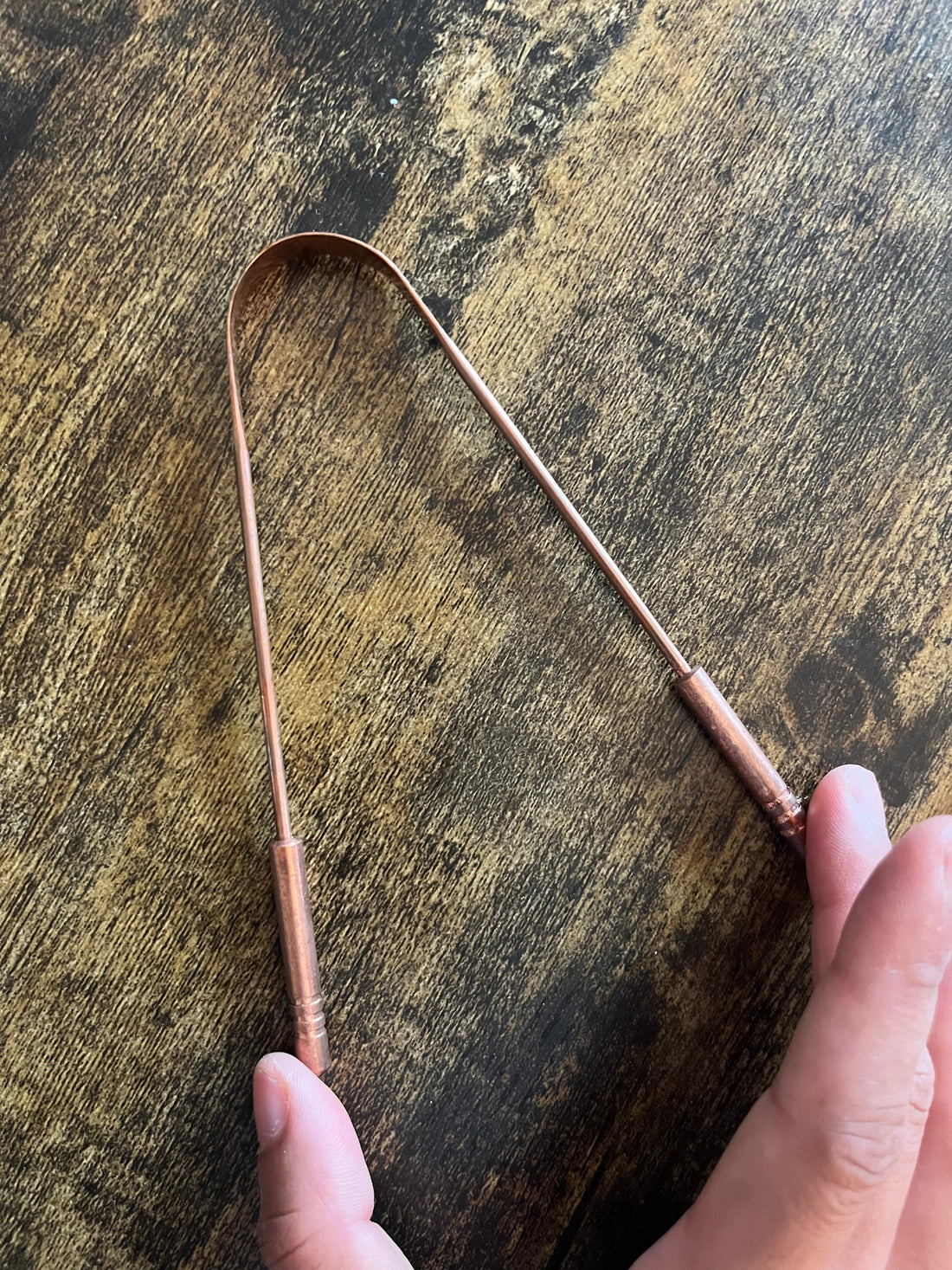
Tongue Scraping: An Ancient Ritual for Modern Oral Health
Share
Beyond the toothbrush tongue scraping, also known as tongue cleaning or "jihva prakshalana" in Ayurvedic tradition, is a centuries old oral hygiene practice that extends far beyond merely freshening breath.
It involves using a specialised device (the tongue scraper) to gently scrape off bacterial build up, food debris, fungi, and dead cells from the surface of the tongue. While often overlooked in modern dental routines, this simple yet powerful ritual is gaining renewed attention for its significant contributions to oral and overall health.
It is an Indian daily wellness ritual with an emphasis on the tongue as a "gateway to all important digestive systems" and this firmly places it as a holistic health philosophy for better health and disease prevention. This tradition recognises that oral health is intrinsically linked to digestive function and overall wellbeing, making tongue scraping a logical and essential component of a daily regimen.
Its long standing presence in various cultures suggests that this practice has been passed down through generations, attesting to its perceived effectiveness over time.
Modern scientific research now provides compelling evidence for the efficacy of tongue scraping in maintaining oral hygiene and preventing common issues.
• Combating halitosis (bad breath): Approximately 85% of all halitosis cases originate in the mouth, with 50% directly caused by residue on the tongue. The dorsum (top surface) of the tongue creates a unique ecological niche, a large surface area where microorganisms, food debris, saliva, and degenerated epithelial cells accumulate. This accumulation, particularly of proteolytic, anaerobic bacteria, metabolises to produce volatile molecules like sulfur compounds, which are responsible for bad breath. Tongue scraping demonstrably removes these culprits, significantly reducing bad breath.
• Reducing bacterial load: Studies confirm that tongue cleaning aids lead to a highly significant reduction in tongue coating scores and a substantial decrease in both aerobic and anaerobic bacterial load on the tongue dorsum. While all tested aids showed benefits, plastic tongue scrapers were particularly effective, achieving the maximum reduction of bacterial load. This is a key finding, highlighting the importance of choosing the right tool.
• Improved taste perception: Beyond hygiene, tongue scraping can enhance sensory experience. Approximately 50% of study participants reported an improvement or alteration in taste after using a plastic tongue scraper. This suggests that removing the coating on the tongue can unmask taste buds, leading to a clearer and more intense perception of flavours.
• Superior to toothbrushing: Research indicates that tooth brushing alone does not significantly improve breath odour. Tongue cleaning is specifically required to minimize tongue coating and bacterial load, underscoring that it is a distinct and necessary practice for comprehensive oral hygiene.
Tongue scraping, a practice with ancient roots, is a scientifically validated method for significantly improving oral hygiene. By effectively removing tongue coating and reducing bacterial load, it tackles the primary cause of bad breath and can enhance taste perception. Integrating this simple, inexpensive ritual into your daily routine is a powerful step towards a healthier mouth and, by extension, supports the overall digestive wellness that ancient traditions have long championed.
Shop your daily ritual here today.